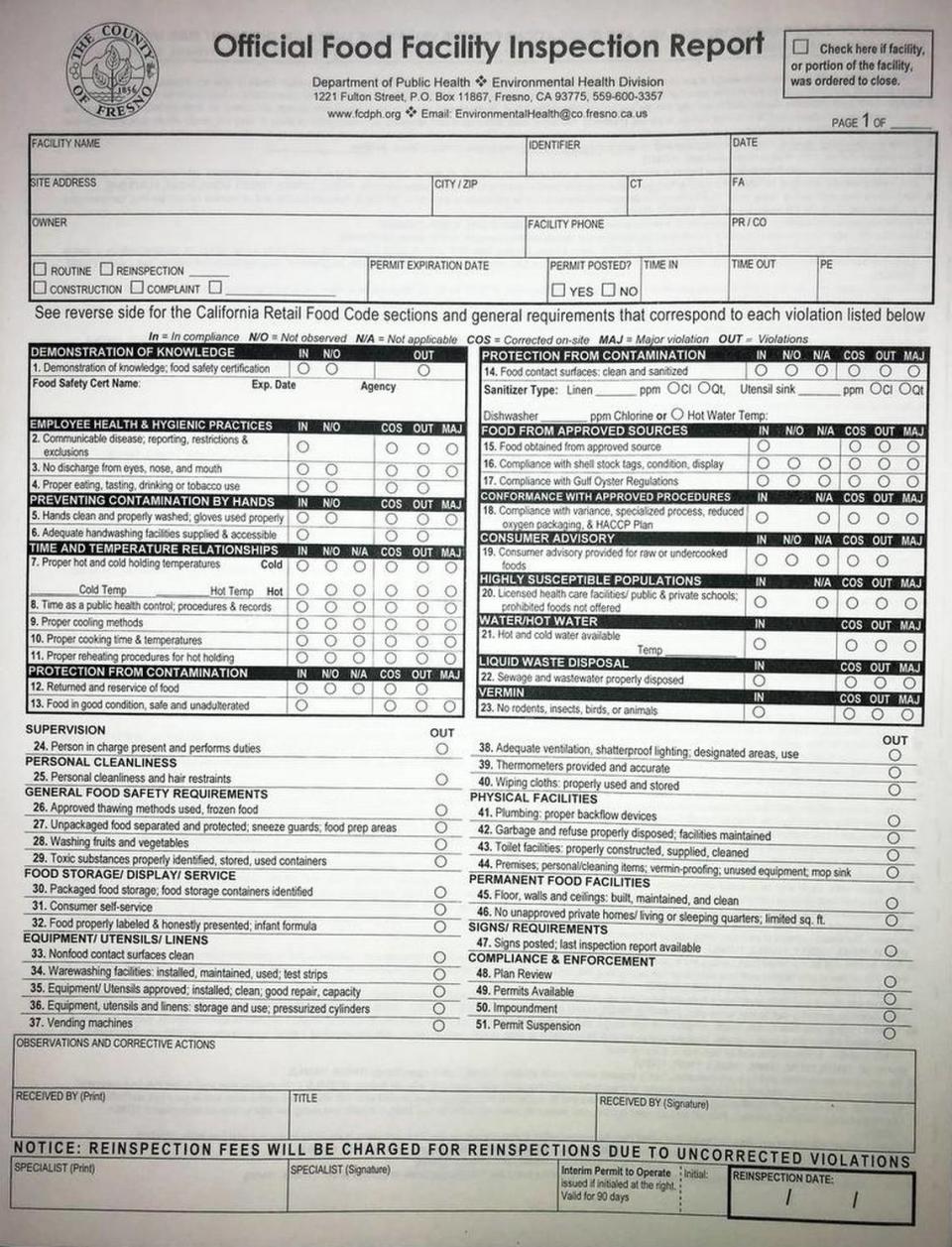Two Fresno-area food kitchens closed for health violations. Here’s what inspectors found
Two food establishments – one in Fresno, the other in Coalinga – were closed by Fresno County health inspectors temporarily after the operations failed food-safety inspections in November.
The Arco AM/PM mini market at Brawley Avenue at Highway 180 in southwest Fresno, and the Keck Park Community Center on Monroe Street in Coalinga were found to have issues with their water supplies.
In a Nov. 21 inspection, the Arco convenience store was found to be served by a public water system for which the state had issued a do-not-drink order. The lack of drinkable water represents a violation of regulations requiring that “an adequate, protected, pressurized potable supply of hot water … and cold water shall be provided at all times,” according to the inspection report.
While at the time of the inspection only pre-packaged foods were being sold in the store, the violation prompted the immediate suspension of the store’s health permit. The business was allowed to reopen on Nov. 27, following a re-inspection that determined the water issues had been resolved and no other violations found.
At the Keck Park center in Coalinga, a Nov. 27 inspection determined that there was a lack of hot water available in the kitchen. According to the inspection report, the hot water temperatures from the hand-washing sink and a three-compartment sink registered only 60 degrees, well short of the required temperature of 120 degrees.
Among other violations found at the Coalinga center were a dirty “blackish/pinkish biofilm” coating an inner portion of the kitchen’s ice machine, and missing grout at floor tiles around the stove and damaged tiles at a doorway.
The health department reported that as of Wednesday (Dec. 13), the community center’s kitchen remains closed until all of the problems are corrected.
Lack of hot water is one of the most common violations inspectors from the Department of Public Health find when they make their routine visits. Hot water at a temperature of at least 120 degrees is considered important by inspectors for safely washing pots, pans, dishes and glasses, as well as for employees to wash their hands.
Insect or vermin infestations are another type of violation that can result in immediate closure of restaurants or food businesses when they are observed by health inspectors.
Among other serious concerns for food safety are refrigerators that don’t keep food cold enough or steam tables that don’t keep food hot enough to inhibit bacterial growth, or clogged sinks or drains that cause contaminated water to back up into kitchens.
In most instances, if an inspector finds a problem, it’s something that can be fixed on the spot – issues such as having enough bleach or sanitizer in the water used to wipe down food-preparation areas, putting lids back onto containers in walk-in refrigerators, replenishing soap, paper towels and toilet paper in the restrooms, or reminding employees to wash their hands and wear gloves and hairnets.
When inspectors visit a restaurant or other food service business, there is a lengthy and detailed list of more than 50 things that draw their scrutiny. They include:
Whether the manager and all employees have the required food safety or food-handling certificates.
Hygiene of individual employees.
Ways to keep cold food at or below 41 degrees and hot food above 135 degrees.
Use of proper sterilization for counters, tables, utensils and cookware.
Overall cleanliness.
Proper drainage of sinks and floor drains.
Restrooms stocked with supplies.
Whether the business has the proper license or permit.


